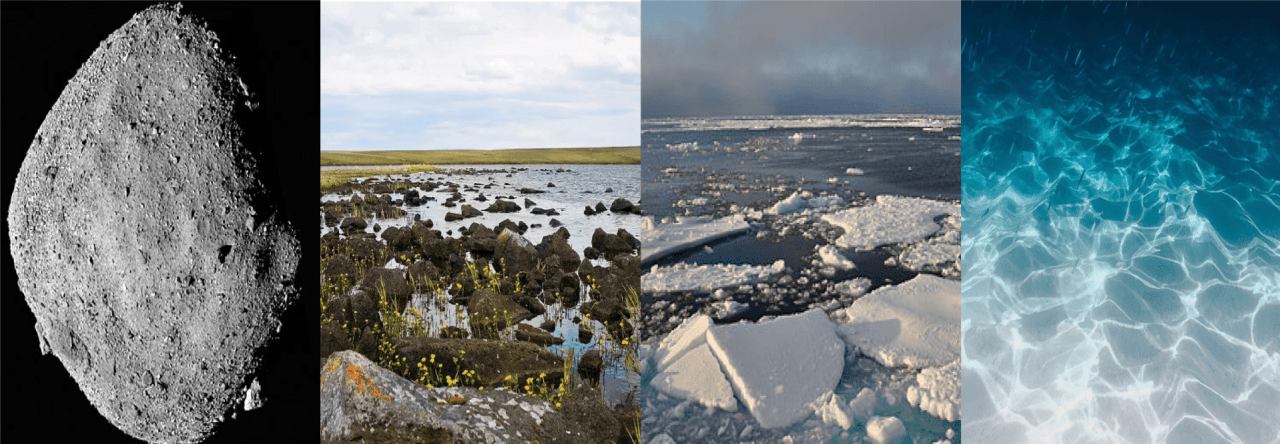Huang Research Lab is a full-scale organic geochemistry lab in the Department of Earth, Environmental and Planetary Sciences at Brown University (since 2000). Our lab’s research centers on the development of lipid biomarker and their isotopic ratios as quantitative proxies for paleoclimate and paleoenviromental studies and subsequent application of these proxies to study mechanisms controlling climate change and environmental response to climate change at a variety of time scales.
Our lab ongoing projects are (for more details, visit the “Research” page):
- Prebiotic synthesis of volatile organic compounds: molecular and
compound-specific isotopic analyses of OSIRIS-Rex returned “Bennu” samples - Demystifying the human evolution, Arctic vegetation, and tundra fire activities using the longest known sedimentary records from Seward Peninsula, Alaska
- Comprehensive analysis of alkenones and alkenoates by reversed phase
HPLC-MS with unprecedented sensitivity and selectivity - Reconstructing the variability of Arctic sea ice in Earth’s history: Lessons from the past and for the future
Our lab measures biomarkers, complex organic molecules, and their compound-specific isotopes (δ13C, δD) in a wide range of samples, from geological samples (e.g., lake/ocean sediments) to abiotic organic molecules in carboneceous chondrites relevant to astrobiology. All analytics are conducted using state-of-the-art instrumentations provided by the Brown DEEPS Core Facilities at Brown University.
